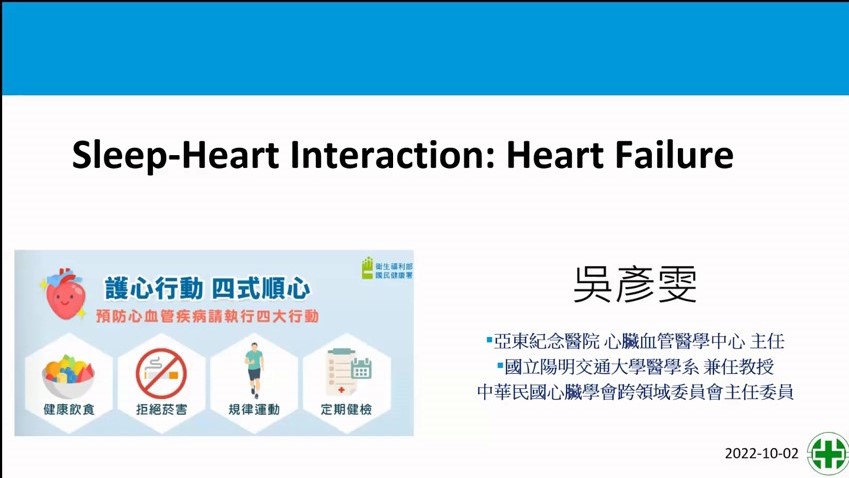
Sleep-disordered breathing (SDB), including obstructive sleep apnea, central sleep apnea (CSA), and Cheyne-Stokes respiration, is common in patients with heart failure (HF) and associated with lower left ventricular ejection fraction (LVEF), increased arrhythmia burden, and increased mortality. All HF patients should be screened for SDB. Effective treatment of OSA with continuous positive airway pressure (CPAP) therapy improves short-term and long-term outcomes in HF patients. Although adaptive servoventilation (ASV) appears to not reduce CV and all-cause death for HF patients with extremely low LVEF, those with profound CSA associated hypoxemia or less severe HF still benefit from ASV therapy. In this talk, we outline the current understanding of the bidirectional relationship between these disorders and HF. Although limited evidence, some studies have shown that sleep quality and insomnia are associated with cognitive function, and patients with HF that are at high risk for cognitive decline. In this talk, we also explore emerging data on the cost effectiveness and outcome of intervention and recent advances in therapeutics, including ongoing trials.